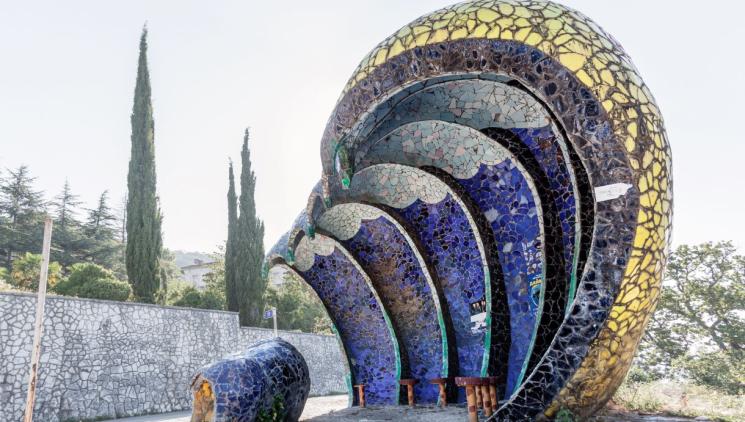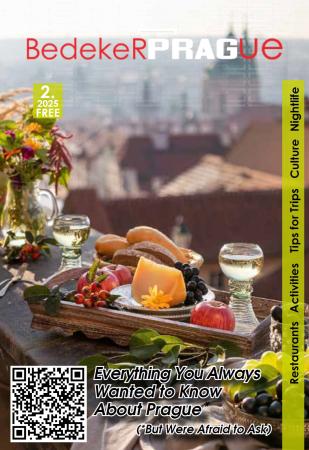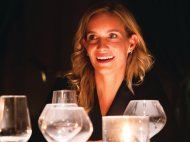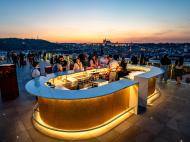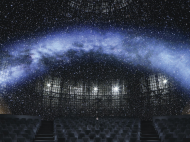“This year's theme inspired by Kafka has allowed us to focus on real eccentricity and strangeness that in other years often didn't make it into the program. However, this doesn't mean that we have forgotten about contemporary architecture or great personalities,” adds Václav Ševčík, curator of the Film and Architecture festival.
This year, the festival will offer over 40 feature-length and short films mainly from foreign production. The guest curator of the Inspiration section this time is Philippe U. del Drago, artistic and executive director of Le FIFA, the largest art festival held annually in Montreal, Canada. In his selection, he will include films not only about architecture but also art. Screenings will be complemented by discussions with filmmakers or architects. Audiences can also look forward to a block of short films or a lecture by historian Lukáš Beran dedicated to the portrayal of architecture in Czech films from the 80s and 90s. More information will be continuously published on www.filmarchitektura.cz. Ticket pre-sale will start at the beginning of September. The festival is organized by the association Kruh.
The Film and Architecture festival will open with the entertaining documentary Soviet Bus Stops, in which Danish director Kristoffer Hegnsvad mapped out bus stops in the former Soviet Union. The stops were one of the few authorial and free expressions of architects and artists during a time of strict regime control. Prior to the official distribution premiere, the festival will present a new feature-length documentary film by director Jan Zajíček and musician and multimedia artist Vladimir 518 Architecture Czechoslovak Socialist Republic 58-89. The film is an extensive exploration of Czech and Slovak architecture in the second half of the 20th century, which, although created under communist rule, managed to captivate the professional audience in the Western world and, despite numerous international awards, often encounters various prejudices in our country. Another prominent festival title, The Mies van der Rohes by director Sabine Gisiger, looks at the life and work of the world-famous architect from new perspectives. The film combines archival footage with dramatized testimonies from his daughter. The film will also be screened at Villa Tugendhat, one of Mies's most famous works. The documentary A Plan for Paradise by director Kati Juurus deals with a clash of cultures that occurred after a Finnish architectural studio won a competition to design a plan for a new city with 600,000 inhabitants near Kathmandu. The architects strive to bring order to the spontaneously growing settlement in the valley where the new city is to be built, leading to a series of comedic situations. The Promise - Architect BV Doshi, directed by Jan Schmidt-Garre, is a portrait of Pritzker Prize winner and former collaborator of Le Corbusier, Indian architect Balkrishna Doshi. The creator did not live to see the completion of the film; he passed away just a few months before its premiere. The documentary serves as a reminder of his significant role in the field of architecture. The Swedish film Divine Darkness by Sven Blume Lewerentz introduces architect Sigurd Lewerentz. The festival will conclude with the debut of Austrian director Bianka Gleissinger's 27 Storeys, which focuses on the largest social housing complex in Austria - Alterlaa.
The Film and Architecture festival takes place annually in parallel with the Architecture Day festival, which will offer various architecture walks or excursions with architects and experts on the given topic, lectures, and many other events throughout the Czech Republic and Slovakia from September 27 to Thursday, October 3. This year, the festival has the subtitle “Process of Transformation”. It also refers to the 100th anniversary of Franz Kafka's death, which will be one of the main program lines and will not only commemorate buildings associated with this author or structures related to literature but will also invite visitors to places with a Kafkaesque atmosphere. Other program sections will be dedicated, for example, to the work of architects Josef Fanta and Karel Hubáček and their collaborators.
The Film and Architecture festival is the only international film festival focused on architecture in our country. It annually offers a diverse collection of films, primarily in Czech premieres, that, in addition to architecture, also delve into visual arts. It stimulates discussions about architecture and urbanism through screenings of authorial documentaries, innovative, experimental, and feature films. It contributes to debates among architects, politicians, and the public about the form, needs, and changes of cities, essential for the further development of our society, and, thanks to the accessibility of the film medium, appeals to a wide audience. The festivals Film and Architecture and Architecture Day are organized by the association Kruh, which has been dedicated to the promotion and popularization of architecture for over two decades.
